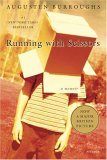Customers Who Hated This Book....

 One of the library 2.0 type features that might be incorporated into online catalogs in the future is the ability to allow patrons to "recommend." You have probably seen this feature on Amazon and it is really quite useful. "Customers who bought this item also bought".... so in the case of an academic library, you might be doing research on women's suffrage and benefit from the recommendations and experiences of other students and/or faculty, who would be suggesting that Book A and Book B are good resources for this topic. Faculty might create a scholarly "Listmania List" or tag a reading list on their particular specialty.
One of the library 2.0 type features that might be incorporated into online catalogs in the future is the ability to allow patrons to "recommend." You have probably seen this feature on Amazon and it is really quite useful. "Customers who bought this item also bought".... so in the case of an academic library, you might be doing research on women's suffrage and benefit from the recommendations and experiences of other students and/or faculty, who would be suggesting that Book A and Book B are good resources for this topic. Faculty might create a scholarly "Listmania List" or tag a reading list on their particular specialty.
 Which brings me to LibraryThing, a very popular web site/application for cataloging and tagging your books and forming communities of similar interest, among other things. They have launched Book Suggester, which allows you to enter a title and quickly returns a list of titles based on "People Who Have This Book Also Have," the Amazon recommendations mentioned above, and "Books with Similar Tags." Now this is great fun and no doubt a benefit to readers everywhere, but the part that is fast becoming a parlor game is the UnSuggester. UnSuggester compares the title you enter with the 7 million books collected by LibraryThing members and returns the titles of those books least likely to share a shelf. For instance, The Nanny Diaries is least likely to share a shelf with A History of Western Philosophy by Bertrand Russell. Only one person owned both. So, I guess the current thinking is that a book that is really repulsive to you, like The Bridges of Madison County or How to Talk to a Liberal, would generate a list of opposites that would comprise your ideal library. It's fun and creates some strange pairings, but I must say it seems heavy with science fiction titles... no, but wait, that's right! That would be the opposite of what I like. Read more about it here...
Which brings me to LibraryThing, a very popular web site/application for cataloging and tagging your books and forming communities of similar interest, among other things. They have launched Book Suggester, which allows you to enter a title and quickly returns a list of titles based on "People Who Have This Book Also Have," the Amazon recommendations mentioned above, and "Books with Similar Tags." Now this is great fun and no doubt a benefit to readers everywhere, but the part that is fast becoming a parlor game is the UnSuggester. UnSuggester compares the title you enter with the 7 million books collected by LibraryThing members and returns the titles of those books least likely to share a shelf. For instance, The Nanny Diaries is least likely to share a shelf with A History of Western Philosophy by Bertrand Russell. Only one person owned both. So, I guess the current thinking is that a book that is really repulsive to you, like The Bridges of Madison County or How to Talk to a Liberal, would generate a list of opposites that would comprise your ideal library. It's fun and creates some strange pairings, but I must say it seems heavy with science fiction titles... no, but wait, that's right! That would be the opposite of what I like. Read more about it here... UPDATE: I was just browsing a Library Journal article on Reading Maps. A new technique for reader's advisory, reading maps are thematic blueprints for exploring different aspects of a subject. Here's an example for the novel Jonathan Strange & Mr. Norrell. I would consider this a type of pathfinder and I recently pulled together something similar (although much less elaborate) on arranged marriage for a reading group. Language arts teachers use similar concept mapping tecnhniques to explore themes in literature. Whatever you want to call it, this is one of my favorite reading pursuits... letting curiosity be your guide.
0 Comments:
Post a Comment
<< Home